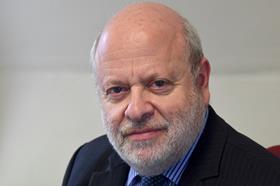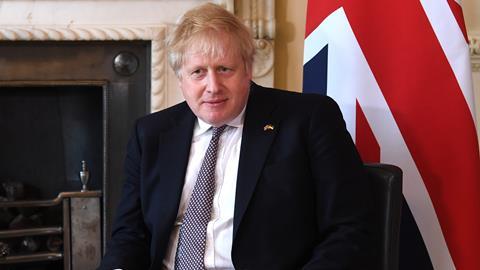The prime minister has a problem with lawyers. It would be too strong to say that he is obsessed by us. But after dozens of prime ministers who never mentioned lawyers once in public, or only rarely, the current incumbent can’t stop attacking us. The question is why.

It happened again last week. He attacked lawyers when setting out his new proposals on sending asylum seekers to Rwanda.
It is alarming that, when pushing all the buttons which he thinks will appeal to his voters – ‘control our borders’, ‘take back control’, ‘world-leading asylum offer’ – he said this:
‘if this country is seen as a soft touch for illegal migration by some of our partners, it is precisely because we have such a formidable army of politically motivated lawyers who for years have made it their business to thwart removals and frustrate the Government’.
The phrase ‘politically motivated lawyers’ has become just as much a catch-phrase as all the others he repeats so often. It is now lawyers’ fault that the government proposes to send certain arrivals to Rwanda to be settled. And if the initiative fails because of legal challenges, that will also be lawyers’ fault. We are deliberately listed as a target – a group of malevolents trying to undermine the good of the nation.
This time, we are not just lawyers, but ‘a formidable army’ of politically motivated lawyers. In a week, when an actual formidable army has been laying waste to Ukrainian cities with tanks, guns and shells, bringing untold death and suffering, it is a highly inappropriate comparison.
And why would anyone compare the relatively small number of immigration lawyers (around 2,000 I calculate) to a formidable army? It is language calculated to induce conflict, to set groups in society against each other, and it shows an underlying problem.
The Law Society pointed out coyly in its response, noted by various news reports, that ‘It is particularly disappointing – this week of all weeks – the government is repeating misleading suggestions that legal challenges are politically motivated’.
This week of all weeks was the week when the prime minister paid a fixed penalty notice for a Downing Street party held in celebration of his birthday during lockdown, in breach of the regulations he himself introduced. The person who was considered this week by the police to have acted against the public interest was the prime minister himself.
Yet it is somehow lawyers acting on their clients’ instructions who are the ones to be compared to a formidable army opposing something ‘world-leading’.
As the Law Society more pointedly stated: ‘If the government wishes to avoid losing court cases, it should act within the law of the land.’
There have been repeated occasions when the prime minister has attacked lawyers.
For instance, in 2020 he claimed that he would take measures ‘stopping the whole criminal justice system from being hamstrung by what the home secretary would doubtless – and rightly – call the lefty human rights lawyers, and other do-gooders’.
A year later, he said that ‘The Labour opposition has consistently taken the side of, I’m afraid, left wing criminal justice lawyers against, I believe, the interests of the public’.
He has repeatedly mocked the leader of the opposition for being untrustworthy on the grounds that he is a lawyer.
What is this problem with lawyers? We are not just blamed, but the words used – formidable army, lefty, do-gooder, against the public interest – show a longing to wound.
It is a fool’s game to guess what motivates other people. We can all have our own go. The problem for the prime minister is that one of the possible motivations is that, now that he is a confirmed rule-breaker, he might be seen as having a personal interest in attacking those (like us) whose role – along with the police and the judges – is to ensure that justice is administered and rules are enforced.
It is therefore plausible now to argue that he has a personal interest, maybe even a conflict of interest, in relation to one of the chief roles of the government, namely the fair administration of justice and the rule of law. We have seen how he has wriggled hard to undermine the case against him.
Of course, he has been attacking lawyers for long before he received a fixed penalty notice. But the evidence of his rule-breaking tendency has been apparent for some while (for instance, in the decision on Priti Patel’s bullying or the handling of the Owen Patterson scandal).
The fact that these issues can be legitimately raised over the reason for his attacks on those whose role is to support the rule of law – even if it may not be what motivates him – raises serious questions over his position in a place of authority over the government.
Jonathan Goldsmith is Law Society Council member for EU & international and a former secretary general of the Council of Bars and Law Societies of Europe. All views expressed are personal and are not made in his capacity as a Law Society Council member, nor on behalf of the Law Society
This article is now closed for comment.
































13 Readers' comments